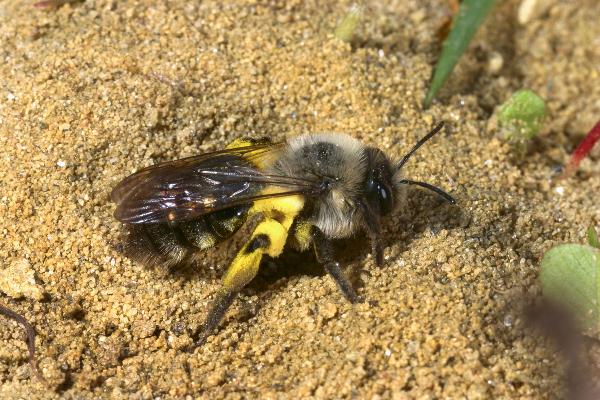Pollinators are vital for our ecosystems and agriculture. Many of them spend critical parts of their lives on or beneath the soil. Despite this, the role of soils in pollinator health remains largely overlooked and little is known about what these soil-dwelling pollinators need to thrive, or how modern soil management practices may be putting both pollinators and the essential ecosystem services they provide at risk.
This is where the EU-funded ProPollSoil project comes in, which will launch on 23 October. Led by the Technical University of Munich (TUM), an international team of 23 interdisciplinary partners will seek to uncover the relationship between soil-dwelling pollinators and soil health and join forces with citizen scientists to pioneer sustainable soil practices for the protection of these pollinators. ProPollSoil has received €7.7 million in funding for the next four years through the Horizon Europe Framework Programme for Research and Innovation.
LMU Munich’s contribution to the project comes from Alexander Keller, Professor of Cellular and Organismic Networks at the LMU Biocenter. Professor Keller will focus on the development of monitoring methods for ground-nesting pollinators using innovative approaches that combine environmental DNA (eDNA) sequencing and artificial intelligence (AI) based image analysis. In this way, he will shed light on the diversity and activity of soil-dwelling pollinator communities, which have proven difficult to study before now. In addition, the LMU team will explore how soil microbiomes shape the microbial associations, genomic functions, and thus health of ground-nesting pollinators. The findings will aim to advance our understanding of soils as key habitats influencing pollinator well-being and to support the development of effective strategies for pollinator conservation and ecosystem resilience.
“The research undertaken in ProPollSoil will ultimately protect and restore soils and the pollinators that depend on them. To make this happen, we will identify the last remaining ’hotspots’ of ‘healthy’ soil supporting diverse pollinators, improve habitats for pollinators across farmed and managed lands, and take direct action to stop biodiversity loss,” explains Sara Leonhardt, Professor in Plant-Insect Interactions at TUM and coordinator of the project.

